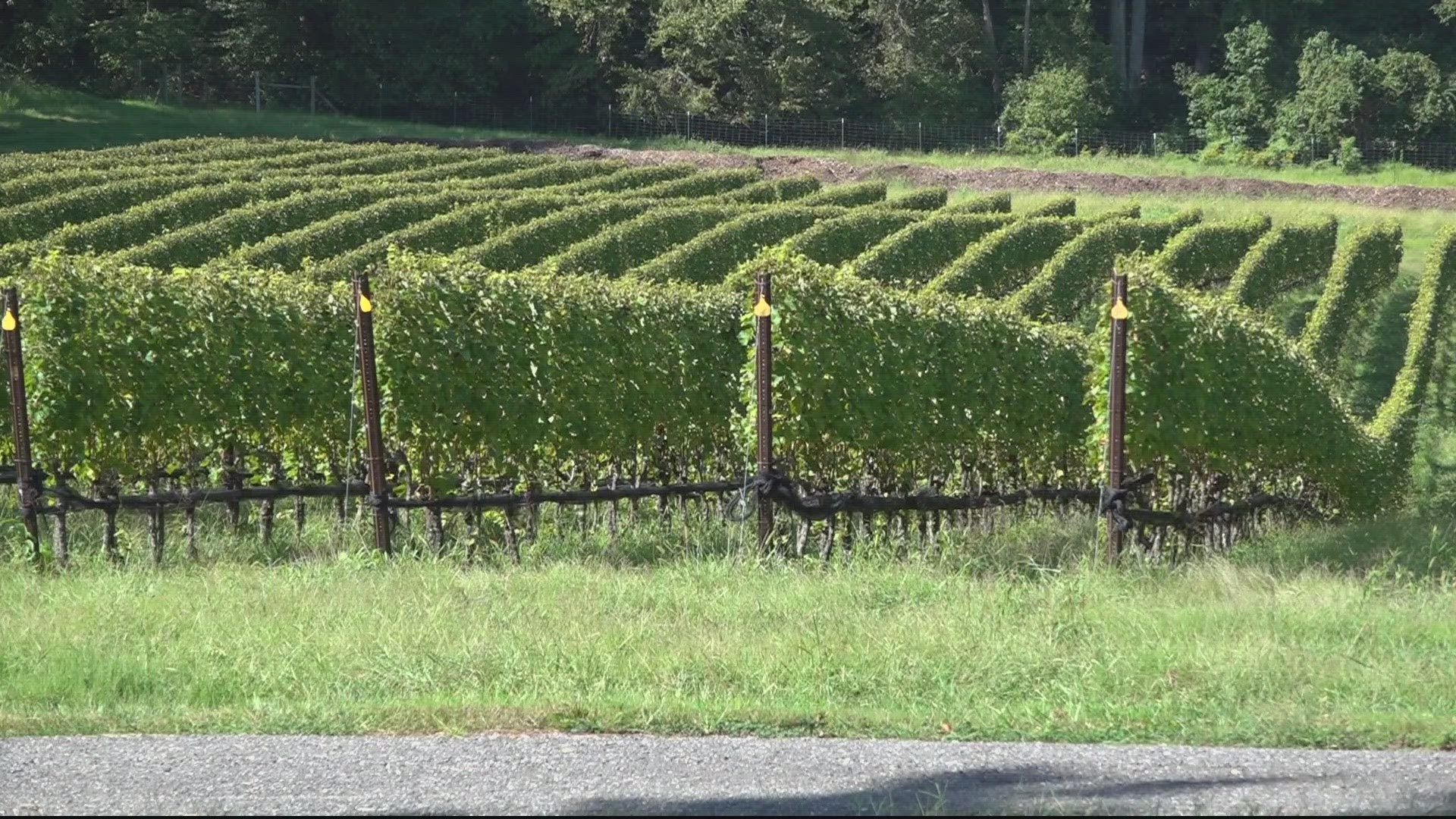DAVIDSONVILLE, Md. — At the Vineyards at Dodon in Davidsonville, Maryland you will see rows of grapes for red and white wines. If you’re just passing through, at first glance it will look like what you would expect a vineyard to look like.
But if you look closer at each row of vino you will see a mess of overgrown weeds in between.
Former physician and scientist, now winemaker, Tom Croghan will tell you -- you are looking at it all wrong.
“It’s just beautiful,” Croghan said with a smile. “I see a functioning eco-system.”
There is a method to what most consider a mess. It’s all about capturing carbon.
“[The grape leaves] are taking in energy of the sun and the carbon dioxide from the atmosphere,” Tom explained the process. “They are using that to convert it to sugars.”
That carbon dioxide travels down the plants into the soil. That is where the “mess” of weeds comes into play.
“Because we have this diverse area of grasses and forbs, that carbon gets stored in the soil,” Tom said.
In most vineyards you would see either dirt or well-trimmed grass under each row of grapes. Croghan said in those cases the carbon would have nowhere to go and would return to the atmosphere.
The ecosystem of various plants allows Dodon vineyards to capture more carbon than they put out.
“Each bottle of wine equals about as much carbon as a gallon of gas,” Tom explained.
Tom said solar energy powers the rest of the operation--from the tasting room to the barrel rooms. The way the operation is run makes it one of the first carbon-negative vineyards on the east coast.
But, Tom said the carbon capture aspect of the vineyard is just a by-product of the bigger picture of what they have built at Dodon: a sustainable, resilient operation.
“Our goal was to adapt to the changing climatic conditions,” he said.
They’ve done that in several ways. That same mess of weeds creates microbes that ferment the grapes and do something else.
“Makes the leaves bitter so the insects don’t like to eat the leaves, so they’re protected,” he said. “We have been able to reduce our insecticide use by 70%.”
Then come the sheep. The four-legged part of the operation provides a grass cutting service, works the soil and fertilizes the vines with their manure.
What you see at the end appears to be just a bottle of wine, but’s what’s behind it is a self-sustaining ecosystem, ready for the challenges of a changing climate.

